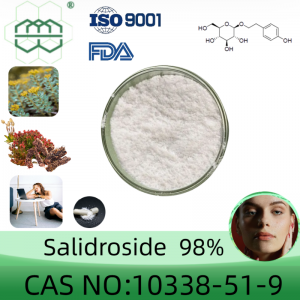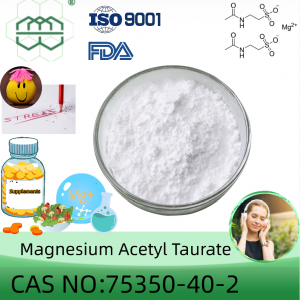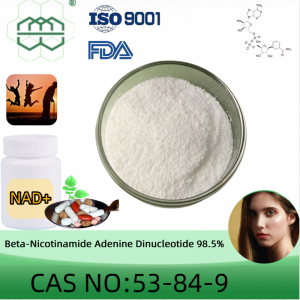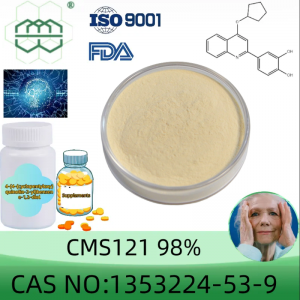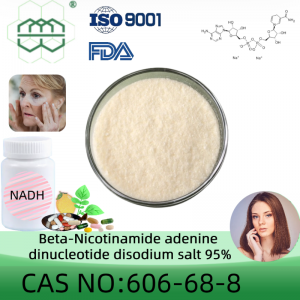Manufacturer Mitoquinone Bromide CAS No.: 336184-91-9 25% purity min. For supplements ingredients
Product Parameters
| Product name | Mitoquinone Bromide |
| Other name | mitoquinone bromide
Mito-Q MitoQ mitoquinone mitoquinone cation (10-(4,5-Dimethoxy-2-methyl-3,6-dioxocyclohexa-1,4-dien-1-yl)decyl)triphenylphosphonium bromide DMRUQISFVFDWGE-UHFFFAOYSA-M 10-(6'-ubiquinolyl)decyltriphenylphosphonium J-690299 [10-(4,5-Dimethoxy-2-methyl-3,6-dioxo-1,4-cyclohexadien-1-yl)decyl]triphenyl-phosphonium Bromide |
| CAS No. | 336184-91-9 |
| Molecular formula | C37H44O4BrP |
| Molecular weight | 663.6 |
| Purity | 25% |
| Appearance | Yellow or light yellow powder |
| Packing | 1kg/bag, 25kg/barrel |
| Application | Dietary Supplement Raw Materials |
Product introduction
Mitoquinone bromide is an analog of Coenzyme Q10 that has been shown to have potent antioxidant activity. Mitoquinone, also known as MitoQ, is a unique form of Coenzyme Q10 (CoQ10) that specifically targets and accumulates in mitochondria, the powerhouses of the cell. Unlike conventional antioxidants that may have difficulty penetrating the mitochondrial membrane, Mitoquinone is engineered to effectively reach this important organelle where it exerts its potent antioxidant effects. Bromide is a negatively charged ion with the chemical formula Br⁻. It is an important component in a variety of chemical reactions, particularly in SN2 reactions where it can act as a nucleophile or an ionizing radical. Mitoquinone bromide is targeted to mitochondria via covalent attachment to a lipophilic triphenylphosphine cation. Due to the large mitochondrial membrane potential, the cation accumulates up to 1,000 times more in mitochondria than non-targeted antioxidants such as Coenzyme Q or its analogs, enabling the antioxidant moiety to block lipid peroxidation and protect mitochondria from oxidative damage. By selectively blocking mitochondrial oxidative damage, it prevents cell death. Mitoquinone bromide may be a useful mediator of mitochondrial oxygen consumption.
Feature
(1) High purity: Mitoquinone bromide can obtain high-purity products through refining production processes. High purity means better bioavailability and fewer adverse reactions.
(2) Safety: High safety, few adverse reactions.
(3) Stability: Mitoquinone bromide has good stability and can maintain its activity and effect under different environments and storage conditions.
Applications
In the context of aging, the decline in mitochondrial function and the accumulation of oxidative damage are key factors in the aging process. The targeted antioxidant effects of mitoquinones make them strong candidates for interventions aimed at promoting healthy aging and longevity. In addition, its neuroprotective properties may delay cognitive decline associated with age, providing a potential way for us to maintain cognitive vitality during the aging process. Mitoquinone has also attracted attention for its antioxidant capacity in the field of skin care. The skin is constantly exposed to environmental stressors and is highly susceptible to oxidative damage. By harnessing the power of mitochondrial quinones, a more youthful and radiant complexion can be achieved.










